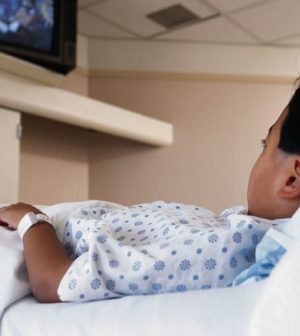- Could Your Grocery Store Meat Be Causing Recurring UTIs?
- Are You Making This Expensive Thermostat Error This Winter?
- Recognizing the Signs of Hypothyroidism
- 10 Strategies to Overcome Insomnia
- Could Artificial Sweeteners Be Aging the Brain Faster?
- Techniques for Soothing Your Nervous System
- Does the Water in Your House Smell Funny? Here’s Why
- Can a Daily Dose of Apple Cider Vinegar Actually Aid Weight Loss?
- 6 Health Beverages That Can Actually Spike Your Blood Sugar
- Treatment Options for Social Anxiety Disorder
Radiation for Childhood Brain Tumor Can Hinder Memory

Radiation therapy for the most common childhood brain tumor can cause memory problems, new research suggests.
Specifically, it can leave young survivors struggling to create memories of recent personal events, the small study found. But survivors’ ability to recall ones that happened before radiation wasn’t affected.
“There are some known cognitive effects from radiation treatment, including short-term memory loss and difficulties in school, but no one had really looked at this retention of biographical information,” said study author Melanie Sekeres.
“But it was surprising that previously acquired memories, which children had before treatment, were preserved,” Sekeres added.
She’s an assistant professor of psychology and neuroscience at Baylor University in Waco, Texas.
Medulloblastoma, the most common childhood brain cancer, is diagnosed in between 250 and 500 children in the United States each year. Radiation is typically a major part of treatment. While it has helped boost survival rates, it also affects the developing brain.
Sekeres and her colleagues looked at 12 medulloblastoma survivors and one survivor of an ependymoma, another childhood brain tumor. All had been treated with surgery, followed by radiation and chemotherapy. They were compared with nine healthy children. All were between ages 7 and 18.
The researchers asked the children to recall two memories — one of an event from the past month and another from as long ago as they could remember. Brain tumor survivors recalled far fewer details of the recent event, such as time and place, than the healthy children.
Sekeres said radiation may hinder growth of nerve cells in the hippocampus, a brain area responsible for memory.
“Even though the reduced volume of the hippocampus may be a leading reason, we do see brain-wide changes” that could contribute to the children’s memory problems, she noted.
Sekeres said more research is needed to learn how the hippocampus works in children who have had brain radiation. Other studies have identified exercise as a way to promote nerve cell growth in this part of the brain, she said, and it could be used to help affected children.
“Something that’s positive is that the kids do seem to retain some of their early life memories — it’s not a complete impairment across the life span,” Sekeres said.
Dr. Matthew Ladra, director of pediatric radiation oncology at the Johns Hopkins Kimmel Cancer Center at Sibley Memorial Hospital in Washington, D.C., reviewed the findings.
He praised the study for “taking our understanding to the next level regarding these memories of details and a more descriptive measure of memory loss.”
Ladra agreed with Sekeres that more research is needed. He said a next step is to determine what rehabilitation tools and techniques might help young survivors improve thinking skills affected by radiation treatment.
“Some medications can help, and there are ways to train your brain to be more engaged and to actively participate in the memory-making process, which increases the number of memories retained,” Ladra added.
The study was published Aug. 20 in the JNeurosci journal of the Society for Neuroscience.
More information
The American Cancer Association offers more about childhood brain cancer.
Source: HealthDay
Copyright © 2026 HealthDay. All rights reserved.










